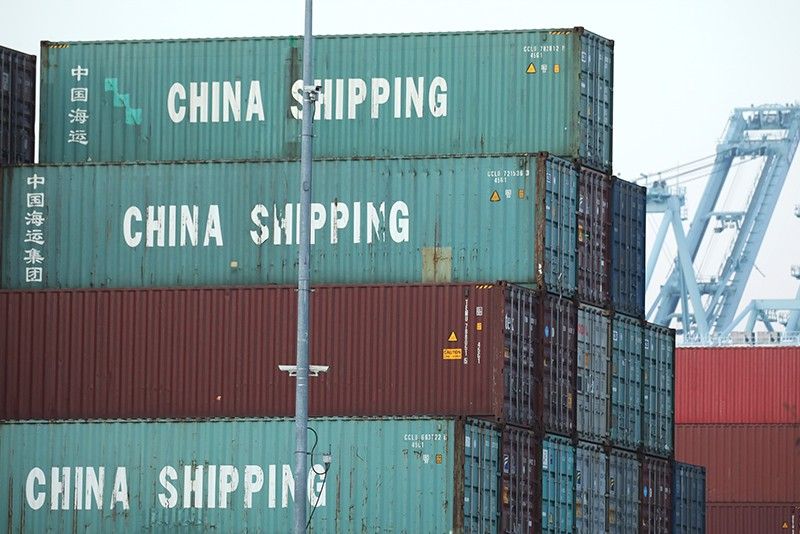Trade war hangover: Spirits industry tries to avoid tariff crossfire

NEW YORK, United States — Bourbon from Kentucky and Scotch whisky have already been targeted. What's next? French cognac?
As US President Donald Trump has shaken up international commerce through myriad trade fights, the spirits industry has found itself an unlikely pawn in an escalating row between Washington and the European Union.
Bourbon, the renowned Kentucky product, got hit with 25 percent duties in June 2018 when Brussels' retaliated against US tariffs on steel and aluminum.
That possibility "just would have never been on my radar," said Amir Peay, who heads James E. Pepper Distilling Co.
At the time, Peay's Lexington, Kentucky company was ramping up in Europe, investing in new warehouse space, making contact with new distributors and unveiling new bottle formats.
The EU targeted Kentucky Bourbon for a reason: it's made in the home state of US Senate Republican Majority Leader Mitch McConnell, a key Trump ally.
But the decision still caught the industry off guard.
"I literally woke up one morning at six o'clock to a phone call from a journalist who wanted to have feedback on being used as pawns in a trade war," recalled Eric Gregory, president of the Kentucky Distillers' Association.
"My first reaction was 'Oh, Kentucky Bourbon really made it!' And then it was, 'Oh my gosh, what's going to happen?'"
Since the levies were imposed, US whiskey exports to Europe have fallen by 28 percent.
Whisky 'Summit'
The industry's has responded with a charm offensive, including meetings with lawmakers, written appeals to trade officials on both sides of the Atlantic and frequent efforts to reach out to media.
In July 2018, the eight biggest whisky groups in the world convened a "summit" in Louisville, Kentucky to strategize.
The gathering came as European Commission President Jean-Claude Juncker attended a surprisingly amicable White House meeting with Trump, which seemed a positive step, until each side announced conflicting results.
"They announced that the conversations were picking up speed," Gregory recalled. "Here we are a year and a half later, and it's going in the opposite direction."
The latest tariffs on alcohol came from the US side, spurred by a trade case over European subsidies to Airbus.
Washington in October imposed 25 percent tariffs on single-malt whisky from Scotland, as well as on some other European wines and spirits.
US officials say they are authorized by the World Trade Organization ruling to raise those tariffs to as much as 100 percent, and could widen the penalty list to add popular items such as cognac.
Champagne could be the next beverage hit in the battle over France's digital tax on major internet companies.
"We were in very close contact with the European Commission during the first half of 2018, really questioning why they would want to put a tariff on American whiskey coming into Europe because it rather shone a spotlight on what is actually more of a European trade sector," said Karen Betts, chief executive of the Scotch Whisky Association based in Edinburgh.
Booze distillers united
The biggest spirits companies are multinationals that sell a range of booze, from whisky and tequila to rum and cognac, and American and European trade groups have joined forces to fight the tariffs across the spectrum, and to defend the entire supply chain, from farmers to bartenders.
Representatives from Europe plan to travel to Washington in January at the conclusion of the public comment period on the next round of tariffs, said Chris Swonger, chief executive of the US Distilled Spirits Council.
Following a 1997 agreement between the US and EU against tariffs on spirits, there was a 450 percent increase in trade, Swonger said.
The tariffs create a dilemma for distillers, who must decide whether to raise the price of a dram, and lose customers, or suffer a hit to their profits and potentially be forced to cut workers.
Companies also must make decisions about production, which is complicated for products like bourbon that require years to produce.
"There are no winners in a trade war," Gregory said.
"I don't care if it takes a glass of scotch, of Irish whiskey or of Kentucky bourbon, we just want them back at the negotiating table."
- Latest
- Trending






























